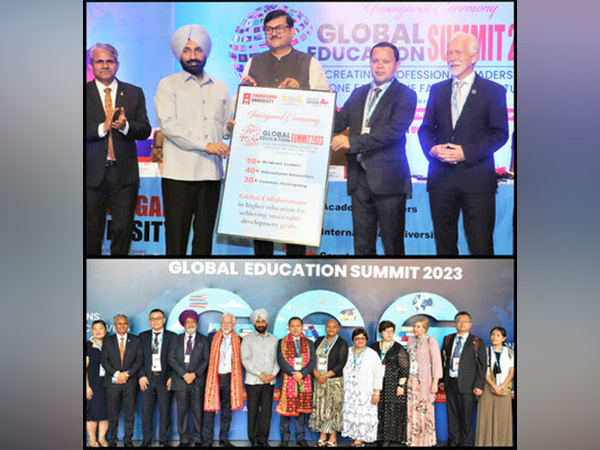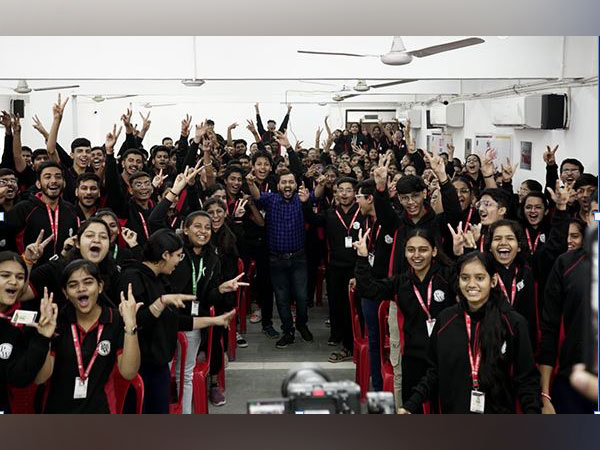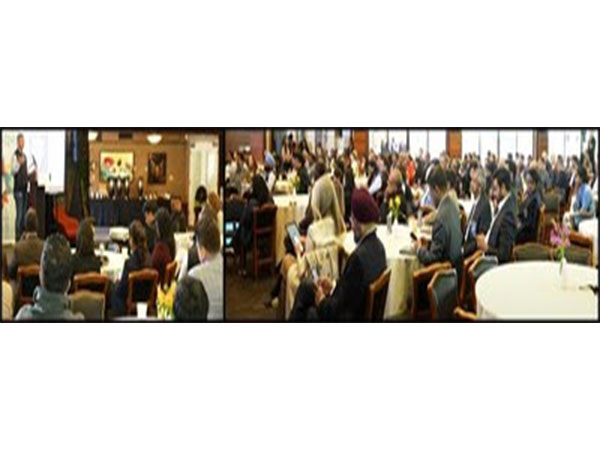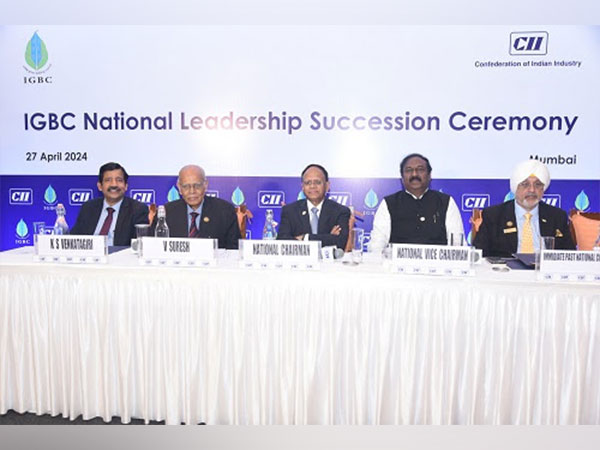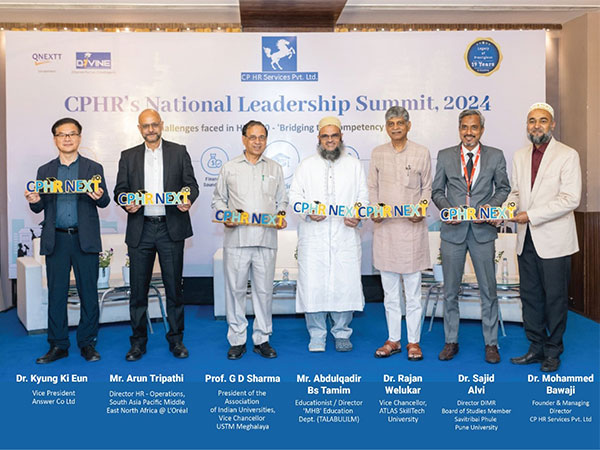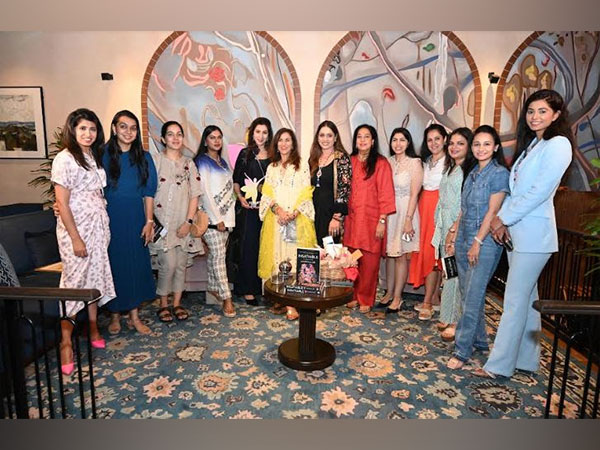Global Academic leaders laud PM Modi's vision of 'One Earth, One Family, One Future' during India's presidency of G-20
Oct 10, 2023
PRNewswire
Chandigarh [India], October 10: Focused on fostering global collaboration in higher education and achieving inclusiveness through internationalisation of higher education, Chandigarh University (CU) is hosting a three-day Global Education Summit (GES-2023), which started on Monday (October 9, 2023).
The academic leaders, which includes Vice-Chancellors, Presidents, and top officials, of more than 40 universities from across 30 countries like UK, USA, Australia, Canada, Ireland, Italy, Russia, South Africa, Ethiopia, Malaysia, Thailand, Bangladesh, Nepal, Kazakhstan, Japan, Uzbekistan etc are taking part. The Summit is being held on the theme Creating Professional Leaders for 'One Earth, One Family, One Future'. While 20 academic leaders are participating in the Global Summit in-person, 27 others are joining through virtual mode.
The inaugural session of the education summit was attended by - Dr. Md. Sabur Khan, Founder and Chairman, Daffodil International University and President, Association of Universities of Asia and the Pacific (AUAP), Bangladesh; Prof. Abhay Purohit, President, Council of Architecture (CoA); Prof. (Dr.) Sibrandes Poppema, President, Sunway University, Malaysia; and Ms. Anju Ranjan, Dy. Director General, Indian Council for Cultural Relations (ICCR).
The welcome address was delivered by Pro Chancellor of Chandigarh University Dr R.S Bawa who also introduced the audience about the theme and various aspects of the summit and what are its goals. Chandigarh University Chancellor Satnam Singh Sandhu was also present on the occasion.
On the day one of the education summit, sessions were held on topics like Global Collaborations in Higher Education for achieving Sustainable Development Goals, which was chaired by Prof. (Dr.) Sibrandes Poppema, Dr. Md. Sabur Khan, and Dr. Kai Peters.
On the sidelines of the Education summit, several universities formalized partnerships, resulting in collaborative research initiatives, student exchange programs, and joint academic projects. These agreements pave the way for future global collaborations in education and research.
While addressing the gathering at the Global Education Summit, Chandigarh University Chancellor Satnam Singh Sandhu said, "The theme of this year's Global Education Summit is designed to prepare a roadmap for creating professionals through universities and educational institutions to achieve Sustainable Development Goals. Now is the time to do something new for the welfare of all, so that we can help achieve socio-economic goals across the world. It is needed to develop values that are best for universal progress."
He said, "The message of Global Cooperation in higher education is inspired from the G20 Theme 'One Earth, One Family, One Future' given by Prime Minister Narendra Modi, and today's summit is a true reflection of the theme as academicians from universities from different parts of the world have gathered on a common platform. Through this Summit, we look forward to new ideas and new strategies of working and offering the best in terms of education to the future generations."
Dr. Md. Sabur Khan from Bangladesh said, "Global Education Summit has brought delegates and academicians from across the world to focus on creating professional leaders to build one strong future together as One Earth, One Family. However, it is not possible to achieve anything without a team of innovative minds and best practices, and best innovative ideas usually come from young minds. Hence, it is important to bring innovative minds to mainstream."
Prof. (Dr.) Sibrandes Poppema, President Sunway University, Malaysia, expressed his gratitude for being a part of Global Education Summit for the second consecutive year. He said, "Global Education Summit is a fantastic education platform to discuss the subject - 'Creating Professional Leaders for One Earth, One Family, One Future', and analyze different aspects of internationalization, innovation, and Sustainable Development Goals (SDGs) to achieve this common goal."
He said, "Though there are many possibilities, including Medicine, to make the world a better place, but Education is more powerful of them all. Through Education, you can influence the next generation, and encourage the youth to do more than what previous generations have done. However, Education is not just about knowledge and skills, but there is more to it - the Values and the Mindset. It is important to teach the students the values of integrity and humanity, and expose them to planetary health, sustainable development, entrepreneurship - even better a sustainable entrepreneurship - and employability."
Dr. Poppema further said, "University prepares students for Good Employability, Good Education, and Good Quality Research relevant to society and the industry. In addition, the university must engage students in community service projects to teach them to help the community and feel privileged for what they have. Educating people is the right way of helping the community, and that way we can make One Earth, One Family, One Future."
Dy. Director General ICCR Anju Ranjan said, "The countries across the world are striving to impart education into their future generations, but they must understand the importance of sustainable development and job employability while working for it. In the western parts of the world, basic Education, and Education as a matter of right has been focused much more than on our side of the world where we are still trying to fill the gap between big cities and the small cities."
Anju Ranjan said, "Since the entire world is one Big Family, Synchronization of Education system is important to take everyone forward together and leave no one behind. It is essential to understand that education is beyond a classroom, and we must adapt to the future need of online learning, which has been proved to be effective during the pandemic."
Ms. Anju said, "The New Education Policy is a major turning point in Indian education system, which provides students the flexibility of choosing subjects to learn. Every year, Literacy rate in India is increasing, and so is the human resource development that is fully employable. Only through education, can we create professional leaders and understand the futuristic theme 'One Earth, One Family, One Future' given by our Prime Minister Shri Narendra Modi."
Prof. Abhay Purohit, President, Council of Architecture (CoA) said "The concept of 'Vasudev Kutumbhkam' has always existed in Indian society, and the theme of today's summit is inspired by the same, which requires every nation, every individual to work as One Family to build an educated and developed world."
He said, "It is the time to analyze how disruptive technology can impact our education system. National Education Policy introduced by Modi government has standardized Indian education system, which imparts customized education as per the need and interest of the students. As we are moving ahead in times, artificial intelligence is making its way in all fields, including education. It is essential that we adopt new technologies in the field of education to progress and develop."
About Chandigarh University
Chandigarh University is a NAAC A+ Grade University and QS World Ranked University. This autonomous educational institution is approved by UGC and is located near Chandigarh in the state of Punjab. It is the youngest university in India and the only private university in Punjab to be honoured with A+ Grade by NAAC (National Assessment and Accreditation Council). CU offers more than 109 UG and PG programs in the field of engineering, management, pharmacy, law, architecture, journalism, animation, hotel management, commerce, and others. It has been awarded as The University with Best Placements by WCRC.
Website address: https://www.cuchd.in/
Photo: https://mma.prnewswire.com/media/2242912/Inauguration_3rd_Global_International_Education.jpg
(ADVERTORIAL DISCLAIMER: The above press release has been provided by PRNewswire. ANI will not be responsible in any way for the content of the same)
